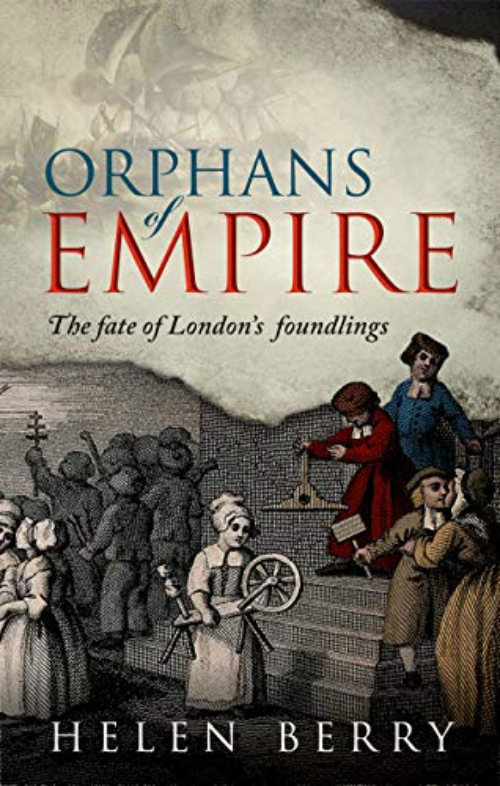Professor Helen Berry

Professor Helen Berry
Helen Berry is Head of Department and Professor of History in the Department of History at the University of Exeter. A prizewinning Fellow of the Royal Historical Society, she specialises in British history circa 1660 to 1800, with a particular interest in social, cultural and economic history. Her research and teaching are closely linked, and cover a wide range of themes, from the history of how a new kind of consumer society emerged in Britain during the eighteenth century, to how global trade and economics shaped personal experiences, families and communities.
Helen is passionate about encouraging people to think more broadly about British history in a global context, and is motivated to write history books that link contemporary life and social politics to the past.
Books
Orphans of Empire: The Fate of London's Foundlings
Rights
Endorsements
Orphans of Empire is a heartbreaking read that is also absolutely unputdownable. Helen Berry brings the 18th century to glorious life in a way that few historians can match, every book of hers is a treasure.
her honest subjectivity makes this a better book. It has a soul. Orphans of Empire is a fascinating, beautifully written story about an 18th century charity, but also a book that asks difficult questions about welfare that remain relevant today.
Overturns preconceptions ... Orphans of Empire is noteworthy for Berry's meticulous examination of the records that document individual appeals and interventions. Helen Berry has produced a remarkable study, informative and impassioned.
The history of the Foundling Hospital is well known, but for those coming new to the story Berry's is a fresh and insightful introduction. Her pace is lively and her touch is light ... It offers an up-to-date and authoritative history of Thomas Coram's hospital that is at its most valuable when focusing on the life stories of the foundlings themselves.
An excellent book... There is a Foundling Museum at Brunswick Square and to my shame I'd never visited it until the book inspired me to go along.
Synopsis
**shortlisted for the Cundill History Prize**
Eighteenth-century London was teeming with humanity, and poverty was never far from politeness. Legend has it that, on his daily commute through this thronging metropolis, Captain Thomas Coram witnessed one of the city's most shocking sights - the widespread abandonment of infant corpses by the roadside. He could have just passed by. Instead, he devised a plan to create a charity that would care for these infants; one that was to have enormous consequences for children born into poverty in Britain over the next two hundred years.
Orphans of Empire tells the story of what happened to the thousands of children who were raised at the London Foundling Hospital, Coram's brainchild, which opened in 1741 and grew to become the most famous charity in Georgian England. It provides vivid insights into the lives and fortunes of London's poorest children, from the earliest days of the Foundling Hospital to the mid-Victorian era, when Charles Dickens was moved by his observations of the charity's work to campaign on behalf of orphans. Through the lives of London's foundlings, this book provides readers with a street-level insight into the wider global history of a period of monumental change in British history as the nation grew into the world's leading superpower. Some foundling children were destined for Britain's 'outer Empire' overseas, but many more toiled in the 'inner Empire', labouring in the cotton mills and factories of northern England at the dawn of the new industrial age.
Through extensive archival research, Helen Berry uncovers previously untold stories of what happened to former foundlings, including the suffering and small triumphs they experienced as child workers during the upheavals of the Industrial Revolution. Sometimes, using many different fragments of evidence, the voices of the children themselves emerge. Extracts from George King's autobiography, the only surviving first-hand account written by a Foundling Hospital child born in the eighteenth century, published here for the first time, provide touching insights into how he came to terms with his upbringing. Remarkably he played a part in Trafalgar, one of the most iconic battles in British Naval history. His personal courage and resilience in overcoming the disadvantages of his birth form a lasting testimony to the strength of the human spirit.
